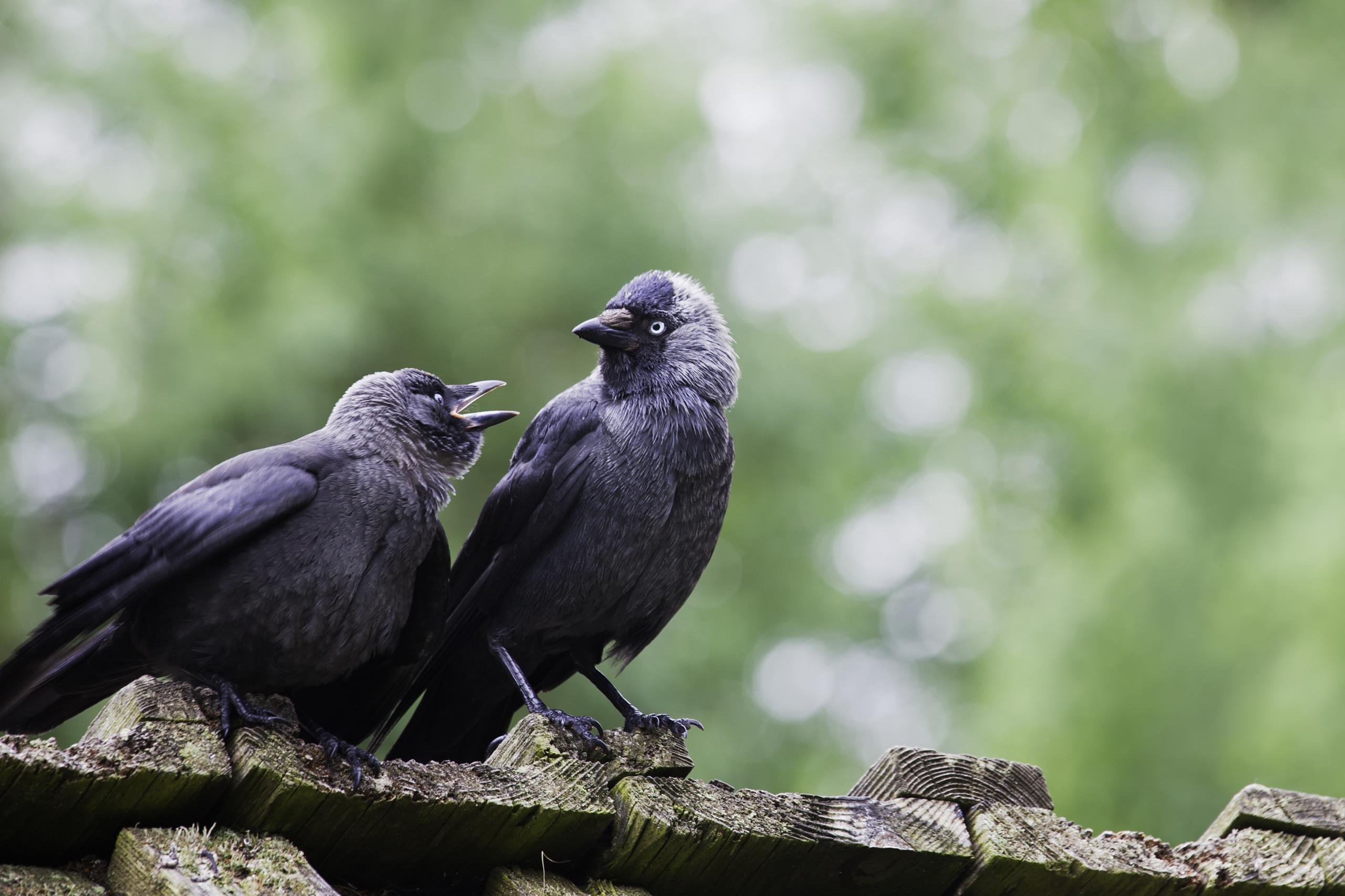Birds of a feather, vote together!
- Published

Scientists have found that jackdaws use a "democratic" process of voting to decide when to move to a new an area so they can all leave together.
In winter thousands of the birds can suddenly take to the sky at the same time, and researchers have now found how they coordinate.
The birds call out when they want to leave and when the noise reaches a critical level, it signals the roost is ready to depart, and the birds fly away.
Alex Thornton, professor of cognitive evolution at University of Exeter, was one of the those behind the discovery, which gives a rare insight into how animals make group decisions.
He explained: "When a bird calls, it's casting a vote or signalling it wants to leave."
Whether they go or stay depends on noise volume and how quickly the noise levels increase.
Once the birds reach agreement, the roost of thousands launches from the tree within five seconds on average, forming one of the famous winter UK spectacles - a murmuration.
If the noise levels rise more quickly, the birds will leave earlier.
How did the study work?
Scientists observed jackdaws' behaviour in Cornwall
To observe the birds' behaviour, scientists attached audio recorders to trees where jackdaws roost in Cornwall over two winters.
They then analysed the sounds and compared the noise to times at which the birds left the trees.
In Norfolk roosts of 40,000 jackdaws have been observed setting off from trees at the same time.
This is something they like to do because it protects them against predators or because it is useful for "information-sharing".
Prof Thornton explained: "If you're flying off altogether, you might notice that another individual is particularly well-fed or you can tell from their calls that they've eaten. You might realise that's a bird worth following to find a good place for a meal."
Other birds may behave similarly but scientists haven't yet studied it in detail.
- Published17 March 2022
- Published23 June 2020
- Published14 April 2020
